History
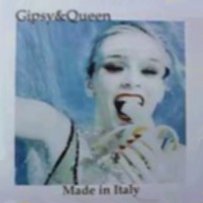 In the 1980's there were many different musical experiements and where as most
of these genres did not survive, there was one that was bound to last for a
longer time. Eurobeat was originally known as italodance, but at the end of the
80's and early 90's the real separation began. New eurobeat studios were created
and a compilation of pure eurobeat music began, Super Eurobeat was born.
The future for this genre was bound in mystery.
In the 1980's there were many different musical experiements and where as most
of these genres did not survive, there was one that was bound to last for a
longer time. Eurobeat was originally known as italodance, but at the end of the
80's and early 90's the real separation began. New eurobeat studios were created
and a compilation of pure eurobeat music began, Super Eurobeat was born.
The future for this genre was bound in mystery.
Eurobeat
is a special genre due to it's origins. All of the music is produced in Italy,
but it is only released in Japan. The artists release their songs on vinyl,
after that the songs are released on eurobeat compilations such as Super
Eurobeat. So you can definitely say 'Made In Italy' where as other
genres aren't so much bound to a county.
The promotion for bands and artists in other music genres is about half of the
success, but in eurobeat that is not the case. Many faces of the vocalists doing
eurobeat are shrouded in mystery, the reasons for this are unknown, only the
most famous names and artists are generally revealed. In the past few years more
and more faces have been revealed but the vast majority is still a mystery.
During the past few years the new recordlabels like SCP have made a difference
by actually providing the fans with pictures, videos and information regarding
their artists, which always seems to interest us fans. Hopefully the future will
also open up the doors to many of the mysteries we've tried to uncover for years.
So what is eurobeat?
Eurobeat can't really be defined with one or two words, it's a music genre that
pretty much borrows bits from many other genres but in the end still does its
own thing. What's common for eurobeat in general is the speed, the songs are
really fast and now we're not talking about the bass-lines, it's the melodies
that are fast. For a new listener the speed might be a bit overwhelming, as for
example here in Finland people are used to slower music, and everytime people
listen to Eurobeat the first reaction generally goes somewhere on the lines of:
'Wow, this is fast'. Though there are also slower eurobeat songs, in particular
the older generation of eurobeat is a lot slower than the modern genre we get
these days.
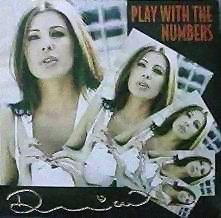 Eurobeat also is generally very happy. Positivity can range from uberhappy
Kiki & Kika songs (for instance Snake Dance is a very positive song)
to a more calmer and serious style of Susy Wender. What can be said is
that the different record labels producing eurobeat have huge differences in the
productions. Other labels produce extra speedy and positive materials, where the
others have a slightly more serious attitude.
Eurobeat also is generally very happy. Positivity can range from uberhappy
Kiki & Kika songs (for instance Snake Dance is a very positive song)
to a more calmer and serious style of Susy Wender. What can be said is
that the different record labels producing eurobeat have huge differences in the
productions. Other labels produce extra speedy and positive materials, where the
others have a slightly more serious attitude.
People who enjoy musicgenres like Europop or Eurodance will probably feel at
home with Eurobeat. And if you enjoy fastpaced music in general, then this is
the genre for you.
Known eurobeat names and artists
If
you dig into the eurobeat scene at first it might seem like it's all a blur and
there are no familiar names what so ever (at least it was like that for me at
first). As eurobeat is a pretty inbred genre there's a huge amount of different
artist names, but the truth is that there are many artists who release songs
under multiple aliases.
Probably the most known name in eurobeat business would be Dave Rodgers.
He composes, sings and produces. So he's a real multitalent. He also owns the
biggest eurobeat label A-Beat C.
A name that might sound familiar to a non-eurobeat fan is Annerley Gordon.
She has become known around the world as the voice of Whigfield. In the eurobeat scene she worked under multiple aliases like Lolita, Annalise,
Virginelle, Groove Twins and Go Go Girls. This is just a
one example of how many aliases one singer can have. Though Annerley left
the eurobeat business at the end of 1994 and was later replaced by a different
singer in some of the projects.
A little bit of information about the Go Go Girls. It's a mysterious
title that has been around for years now. The Go Go Girls are a group
that has had multiple vocalists behind them. Most of the A-Beat C female
vocalists have loaned their voices to this 'band' and also the Go Go Girls
have had a huge number of hits during 'their' career.
Norma Sheffield was actually the first eurobeat artist who got a song
released by the record label A-Beat C back in the year 1990, the song was titled
Your Body Lies. After that Norma has been a regular name to appear
on various eurobeat compilations.
The
list of known eurobeat artists is really long and naturally everybody has their
own favorites. Names like Niko, Domino, Franz Tornado,
Fastway, Matt Land or for example Mega NRG Man might be named
as favorites, but there are also as many favorites as there are artists, so you
pick for yourself. The list is quite long.
Eurobeat in the new millennium
A new millennium began and as a bit of a surprise eurobeat was still going
strong as Super Eurobeat 100 and 110 sold huge numbers and made eurobeat
popular again. Popular hits had been produced before as well, but it was
actually sort of thanks to Disney that eurobeat gained a portion of it's former
glory back. Eurobeat disney albums were produced and Domino got to
perform the well-known Mickey Mouse March and the song became an instant
hit.
The new millennium also brought some changes in the genre itself. More and more
modern sounds were introduced into the genre, and the well-known old 'eurobeat-sound'
is getting left behind little by little as the winds of change blow.
When Super Eurobeat 141 was released a new phase in the SEB history began
as 'new' eurobeat labels were introduced to the compilation. Before SEB 141 only
A-Beat C, Delta and Time had had songs on SEBs. Until now HI-NRG Attack and SCP
for example had been a priviledge for the other eurobeat compilations such as
Eurobeat Flash and Euromach albums, so the future looks bright as the
albums offer more variety in the future.
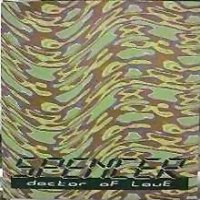
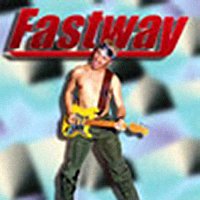
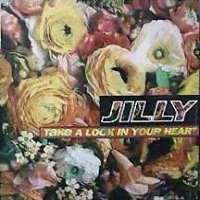
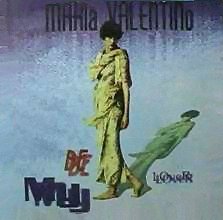
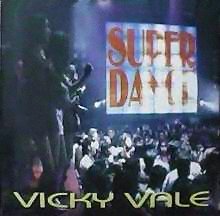
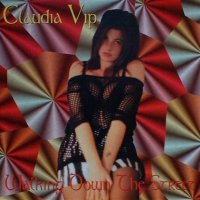
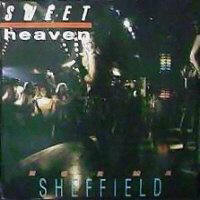
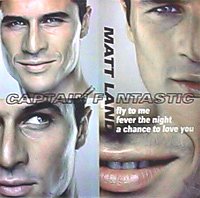
Eurobeat and eurodance compared
Many people think of eurodance when they hear the word Eurobeat for the
first time, as Eurodance is a more familiar term for many europeans and
Americans, and beat is just thought to be the same thing with just a different
name, from the chart below you can see the main differences with the two genres.
These two genres are really close to eachother, but if you listen to some
example acts from both genres you'll notice the difference easily.
|
Eurobeat |
Eurodance |
| Beats Per Minute (BPM) |
The general level is 155 BPM. But the early
days and the modern days have slowed down a bit, and it varies mostly
between ~150-160. |
The general level is around 140. But the beat
sometimes goes up to 150, and way below 140 as well. The BPM varies from
~130-150. |
| Vocals |
The vocals in eurobeat are mostly either male
or female vocals depending on the act. Also duets and such are seen, but
rarely rap. |
The singing is done by a female vocalist and
there are extra raps by a male member of the band/group, and that's a
basis for eurodance. |
| Sounds |
Synthesizers and the typical eurobeat beat are
the main elements. Also modern eurobeat uses a lot of classic dancemusic
elements. |
The fast 'galloping' beat is one of the
key-elements in many of the eurodance songs. Also modern and classic dance
sounds used all around. |
| Style |
Eurobeat is mostly very bouncy and happy,
there are a lot of serious songs as well, but melancholy doesn't just fit
eurobeat. |
Eurodance has a slightly more mature sound to
it, the songs have a serious attitude and the songs are rarely 'happy' (do
not confuse europop with eurodance for example: Smile.dk). |
| Years |
The earliest italo-era years were in the late
80's, and eurobeat is still going on strong. |
Eurodance began in the early nineties and the
last proper eurodance acts appeared in around 1998. |
| Artists |
- Dave Rodgers
- Lolita
- Domino
- Cherry
- Matt Land |
- Basic Element
- Solid Base
- Culture Beat
- Masterboy
- 2 Unlimited |
A little bit about the eurobeat labels
A-Beat C
A-Beat
C
is probably the most well known label, due to the fact that they nowa
days have the biggest portion of every SEB album for themselves, Super Eurobeat 9 was
the dawn of the new beginning for A-Beat C, as that was when the recordlabel was
introduced to Super Eurobeat. Many of the labels producers and artists have
worked with eurobeat and italo disco even before A-Beat C was created, so don't
be surprised to hear familiar voices or see familiar titles on older italo disco
labels. What is pretty easily recognizable in A-Beat C works is the "Rodgers' touch"
that you can surely recognize after you've been around the eurobeat scene for
some time. He has given the label an unique kind of sound to their songs and it
of course has both positive and negative effects, depending on how you look at
it. A-Beat C productions are generally pretty mature and the label supports a
lot of duets between their male and female vocalists. The biggest names from
A-Beat C would probably have to be Dave Rodgers, Matt Land,
Domino, Lolita, Go Go Girls, Norma Sheffield and
King & Queen. A-Beat C has gotten many strong competitors in the past
few years, when the younger generation labels have started a small scale take
over. A-Beat C's biggest plus is that with excellent writers they can produce an
incredible amount of classical eurobeat songs that people will remember for
years to come.
How to contact the A-Beat C studios:
Contini SRL (Ascap)
Via Frua, 7
20146 Milano
Italy
Rodgers Studios SAS (Ascap)
Via G. Verga 301
46030 Romanore
Italy
Saifam - Boom Boom Beat - Asia
Boom
Boom Beat is one of the minority labels on eurobeat. They actually came
along in the early part of eurobeat history around 1994 but their songs haven't
been on many of the eurobeat records. BBB is a label that apparently has
multiple sub-categories. It's under Saifam for starters, but the EPs that BBB
releases have artists from various Saifam labels like Asia Records, Interdance
and Technodisco, so go and figure what the real status is? Boom Boom Beat can be
more easily recognizable from
Dancemania albums for example. But succesful BBB tracks have also appeared
on Euromach and Eurobeat Flash albums for example. Some of the
known BBB artists are Mark Farina, Spencer, Sarah, Alvin,
Milk & Coffea, The Flippers and Ken Martin. If you are
familiar to other eurobeat compilations such as EuroPanic you might also
remember Laurie. What is common for BBB is that the songs are extra hyper,
and there's a huge dose of positivity in the songs. Saifam took off from Avex for a few years
but on Super Eurobeat 161 the label is introduced to the series for the first time! Before this
the label had only apepared on the shorter series. During the
past few years, all we've gotten is the small scale VIP-compilations that have
non-stop edits from the BBB songs, so it's great to get BBB/Saifam back on Avex,
because the label really has a lot of talent and a long line of amazing artists.
How to contact 3B studios:
The Saifam Group
Via Tirso 16
37060 Lugagnano (VR)
Italy
Delta
Delta
is one of the older generation labels that has been around for quite some time
now, the label was created in the year 1995 as producer A. Leonardi from
A-Beat C, L. Newfield and C. Moroni from Time joined forces with new eurobeat names
and put Delta up. The first Super Eurobeat album with Delta on it was 64, where
the old format of 13 songs changed to 18 songs per album. On the same album,
Super Eurobeat 64, Delta also got their very first big hit, which was Marko Polo's Money Go!
So little by
little the label got more and more success and now when you look back to the SEB
history you can locate a huge number of great delta songs. The label has known
names like Marko Polo, Niko, Vicky Vale, Cherry,
Pizza Girl, Suzy Lazy and Dr. Love. Delta's style is pretty
much like A-Beat C, but this label offers a bit more of variety if you ask me.
Delta has succeeded in creating various hits that have a really unique sound to
them and there isn't really a special beat or sound that would be repeated in
the labels songs over and over.
How to contact Delta studios:
Delta SRL
Via Biancamo 14
20052 Monza
Italy
HI-NRG Attack
HI-NRG
Attack is possibly the most hated and loved label at the same time. The
label was created in the year 1994. The label specializes in 'happy' and plain
crazy songs that generally don't have any sense what so ever. When you're
listening to a HI-NRG Attack song the most important thing is to have fun. With
HI-NRG Attack you might experience flashbacks to european bubblegum style every
now and then, but then you might also get certain 'rave'-feelings bout some of
their songs. HI-NRG Attack offers a wide variety of different styles, and in
general this label really does leave a mark. Some of the known names from this
label are Jee Bee, Claudia Vip, Franz Tornado, Bazooka
Girl, Nikita Jr., Baby Gold and Dolly Pop. Mirror
mirror on the wall tell me which one is the most unique label of them all...
How to contact HI-NRG Attack studios:
Live Music Studio
Via Righi 3
15100 Alessandria
Italy
SCP
SCP
is also known as Stefano Castagna Productions, the label was known as Double
for some years until the title was changed to SCP. SCP is also the
youngest of all of the eurobeat labels. Stefano has worked behind many other
labels before this one. SCP's style can be described by mixing HI-NRG Attack and
Delta together. The SCP productions are generally extra fast and catchy, and the
label has a long army of talented singers to back them up, and what usually is
most noticable with this label is that the vocals are very well sung. Some of
the most famous names from this label are Fastway, Kiki & Kika,
Dusty, Ace,
Christine and from the newer names specially
Lisa Lion has made an impact with her first release. A great label that has
a high standard for their own releases.
How to contact SCP studios:
SCP Music
Località Selvello
25010 Pozzolengo (BS)
Italy
<info@scp-music.com>
Time
Time
is one of the biggest eurobeat labels and they have been around since the very
early days. Time actually joined on the SEBs on Super Eurobeat 17. The label has a huge list of big names and famous songs under their belt. Many of
the younger eurober labels have been created by producers who've left Time to
create new labels (for example Vibration and HI-NRG Attack) The
label is probably the most 'mature' one of all of the labels, their productions
are speedy but they retain the small amount of honor that a eurobeat label can
have. Some of the biggest names in eurobeat history come from this label so you
might recognize some of the latter names: Vanessa, Lisa Johnson,
Lou Grant (who unfortunately deceased back in 1999), Rose,
Jilly, Sophie, Chester, Maio & Co. and Mike Hammer
just to a name a few.
How to contact Time studios:
Time SRL (S.I.A.E.)
Via A Papa 1/A
25128 Brescia
Italy
Sym-Music SRL (S.I.A.E.)
Via Vittorio Emanuele 16
24121 Bergamo
Italy
Vibration
Vibration the last eurobeat label, which is also one of the minorities.
Vibration has been around for quite a while but they get their songs released
quite rarely, but the good thing is that they are most of the times very high
quality.
The label has produced some very memorable songs but the list of their artists
isn't anywhere near to the other labels. But some of the most known names would
have to be Maria Valentino, Dee Dee, Jackie 'O, Jimmy
Bravo and Regina. This small record label can be opressed by AVEX but
it's loved by fans.
How to contact Vibration studios:
LED Records Italy
Via Vicini 41 - 25015
Desenzano (BS)
Italy
Tel+Fax +39 (0)30 9144203
The different eurobeat compilations
As most of the eurobeat fans already know, there are multiple different
compilation series that have been going on for quite a while already. We have of
course Super Eurobeat that probably everybody knows. The longest running
and the best known series for the fact that it has been around for such a long
time. The other compilation series include Eurobeat Flash, Euromach,
Maharaja Night HI-NRG Revolution, The Early Days Of SEB (With
different titles under this title), Aerobeat Eurobeat, EuroPanic!,
Eurobeat Disney, Super Euro X'Mas, Para Para Paradise,
That's Eurobeat (+ Now), JGTC, Initial D and in
addition a gazillion small series that might have one or two volumes out. And
well you might ask what's the difference with all of these compilations? They're
all eurobeat anyways...
Super Eurobeat
Super Eurobeat, the compilation series that pretty much everybody who comes here
is without doubt familiar with. The series is one of the longest running
compilation series in the whole world. With over 150 volumes, the series doesn't
seem to slow down at all, and as it has been around for over 14 years, it also
has gone through quite a big metamorphosis since the beginning. In the beginning
the original Time-records, Flea-records and Discomagic were few of the
recordlabels that appeared on the original Super Eurobeat albums. At first the
series began as a Beat Freak release, which lasted for 8 albums, after that the
series was changed to Avex, and that's also when A-Beat C joined in. The first
10 volumes of Super Eurobeat are mostly italo-disco, which is quite different
from the modern eurobeat. The slower beats, and serious 80's tone make this
music stick out from the rest.
After Super Eurobeat transferred to Avex, they released albums with the regular
pace of an album a month (although July and November are generally the two
months of the year when new Super Eurobeats don't come out). The formula of the
series morphed right in the beginning. 2-3 regular albums, a nonstop album, 2-3
albums, a nonstop album, 2-3 albums, a bigger compilation, and then from the
beginning. The series has gone this way from the very beginning, and the formula
seems to work as it's still going strong after 150 volumes. The first 8 Super
Eurobeat volumes were also re-released on Avex in 1994, with slightly different
tracklistings from the Beat Freak SEBs.
- The series ran from 1990 -
- Labels on Super Eurobeat : A-Beat C, Time, Delta, HI-NRG Attack, SCP,
Vibration
- 150+ volumes & 16+ The Best Ofs
Highlights from Super Eurobeat history
21.01.1990 - Super Eurobeat - 001 - The Beat Freak Time Collection is
released. Time appears.
21.11.1990 - Super Eurobeat - 008 - The last Beat Freak Super Eurobeat is
released.
25.11.1990 - Super Eurobeat - 009 - A-Beat C joins in.
25.11.1990 - Super Eurobeat - 009 - 013 - Time is not present on
SEBs.
25.11.1991 - Super Eurobeat - 014 - Time re-joins in. (?)
10.11.1994 - Super Eurobeat - 001 - 004 - Re-released on Avex.
21.10.1994 - Super Eurobeat - 050 - The first bigger compilation with all of the
biggest hits.
10.12.1994 - Super Eurobeat - 005 - 008 - Re-released on Avex.
21.12.1995 - Super Eurobeat - 062 - The last 13 track extended format SEB.
21.02.1996 - Super Eurobeat - 064 - Delta joins in. The new 18 track radio-edit format
is introduced to SEB.
21.03.1997 - Super Eurobeat - 076 - The Super Remix Collection bonuses are
introduced to SEB.
04.08.1999 - Super Eurobeat - 100 - The big 100 is released.
22.01.2003 - Super Eurobeat - 134 - The 18 track format suddenly changes to 15
songs.
18.06.2003 - Super Eurobeat - 139 - The last 15 track SEB.
18.09.2003 - Super Eurobeat - 141 - HI-NRG Attack, SCP
and Vibration join in.
17.03.2004 - Super Eurobeat - 146 - The old 70min. 70songs concept is introduced
to SEB.
04.08.2004 - Super Eurobeat - 150 - The next big milestone.
28.09.2005 - Super Eurobeat - 161 - Boom Boom Beat joins in,
Vibration isn't present.
Maharaja Night HI-NRG Revolution
Maharaja Night HI-NRG Revolution was the 2nd compilation series
to begin after Super Eurobeat. MNHR began back in 92, and the usual pace for
Maharaja was that an album was released every 3 months. The series unlike Super
Eurobeat stack with the same kind of formula from the beginning to the end.
Maharaja Night HI-NRG Revolution is also the only eurobeat compilation series
that didn't really break the formula at any point. The albums were extended and
each album had 12-13 songs. The materials were pretty similar to Super Eurobeat,
maybe slightly calmer in a way. Many of the hit songs that appeared on Maharaja
Night as extended, were later brought to SEB for nonstops (for example :
Lolita - Pretty Woman, Alexis - Hula Hula Hop or King & Queen - Up Side
Down). At the same time with MNHR also a series called Maharaja Night
House Revolution was released, which had a selection of eurobeat and house
music, when The Best Of Maharaja Night collections were released, they consisted
songs from both of the HI-NRG and House series. Maharaja Night HI-NRG Revolution lasted for 24 volumes, and after
that the title was changed to Maharaja Night Euro Fire, for the duration of 1
album, and then it was changed to Euro Fire, and this lasted for 2 albums. So in
total the series had 27 volumes all together.
- The series ran from 1992 to 1998.
- Labels on Maharaja Night HI-NRG Revolution were : A-Beat C, Time, Double (SCP)
- 27 volumes & 5 Best Ofs
Eurobeat Flash
Eurobeat Flash was the third compilation series to begin, and
this time the series was all about the new labels. HI-NRG Attack,
Vibration & Boom Boom Beat came along, and were the
keyplayers in this series. This series was slightly faster and more hyper than
Super Eurobeat, and like Super Eurobeat this series began as an extended
version, but later on changed to the radio-edit format. Eurobeat Flash began
with 2 Extended albums, a nonstop, 2 extendeds, nonstop and one more extended.
After this the series abandoned the extended format and went to the modern
radio-edit form. The series went on for 24 volumes and it consisted a lot of
classic songs, which are warmly remembered by fans. The series is really hard to
come by these days, as most of the albums have been sold out. A-Beat C and Delta were featured on this series both
with only 3 songs.
- The series ran from 1995 to 1999.
- Labels on Eurobeat Flash were : A-Beat C, Time, Delta, HI-NRG Attack,
Vibration, Boom Boom Beat, Double (SCP)
- 22 volumes & 2 Best Ofs
Euromach
When Eurobeat Flash ended and the huge ParaPara phenomenon in
Japan started to spread it was also time to get a new eurobeat compilation
series towarded for the dance. Euromach was the answer to this boom, and also
the answer to many of the eurobeat lovers' dreams. Euromach is a hyper series
that is all about having fun and partying. The series is also one of the
few series with only nonstops albums. The general formula consists of 25-26
songs with all of the labels in the mix, though after volume 10 Boom Boom Beat
and Vibration were dropped out. Out of the labels on this serie HI-NRG Attack
had the biggest portion of each album, and this series also became sort of an
embodiment of HI-NRG Attack all together. The series ended without no
obvious reason, as it was also pretty popular in Japan, which was very
unfortunate and fans are still hoping if there was a return awaiting for
Euromach.
- The series ran from 1999 to 2001.
- Labels on Euromach were : A-Beat C, Time, Delta, HI-NRG Attack, Vibration,
Boom Boom Beat, SCP
- 16 volumes & 2 Best Ofs